TCM schools hold kung fu contest
Source:Ecns.cn Published: 2016/9/8 10:36:10
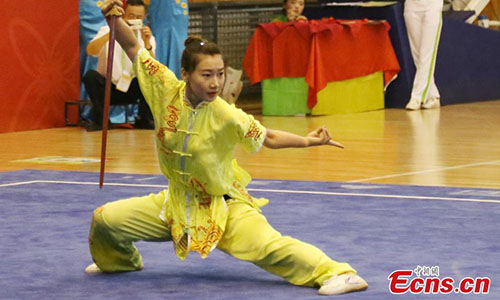
A participant performs kung fu during a traditional healthcare sports meet at Shanxi University of Traditional Chinese Medicine in Taiyuan City, the capital of North China’s Shanxi Province, Sept. 6, 2016. Hundreds of kung fu practicers from 26 schools of traditional Chinese medicine in China participated in the sports meet. (Photo: China News Service/Fan Lifang)
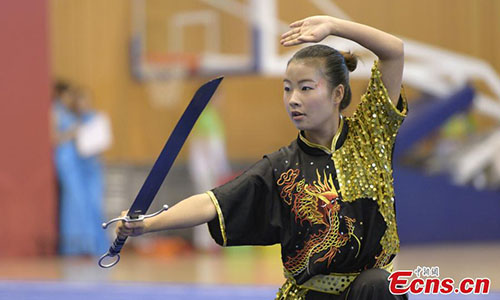
A participant performs kung fu during a traditional healthcare sports meet at Shanxi University of Traditional Chinese Medicine in Taiyuan City, the capital of North China’s Shanxi Province, Sept. 6, 2016. Hundreds of kung fu practicers from 26 schools of traditional Chinese medicine in China participated in the sports meet. (Photo: China News Service/Fan Lifang)
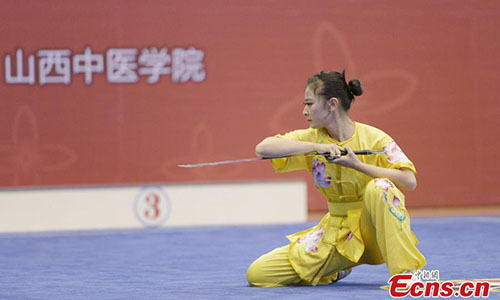
A participant performs kung fu during a traditional healthcare sports meet at Shanxi University of Traditional Chinese Medicine in Taiyuan City, the capital of North China’s Shanxi Province, Sept. 6, 2016. Hundreds of kung fu practicers from 26 schools of traditional Chinese medicine in China participated in the sports meet. (Photo: China News Service/Fan Lifang)
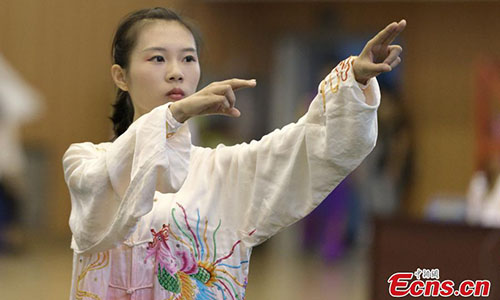
A participant performs kung fu during a traditional healthcare sports meet at Shanxi University of Traditional Chinese Medicine in Taiyuan City, the capital of North China’s Shanxi Province, Sept. 6, 2016. Hundreds of kung fu practicers from 26 schools of traditional Chinese medicine in China participated in the sports meet. (Photo: China News Service/Fan Lifang)
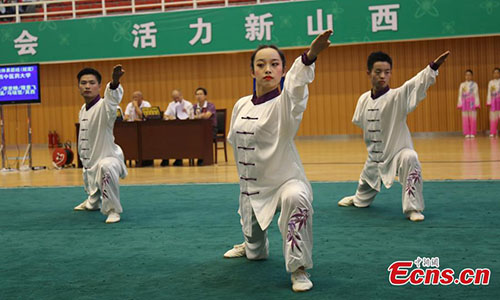
A participant performs kung fu during a traditional healthcare sports meet at Shanxi University of Traditional Chinese Medicine in Taiyuan City, the capital of North China’s Shanxi Province, Sept. 6, 2016. Hundreds of kung fu practicers from 26 schools of traditional Chinese medicine in China participated in the sports meet. (Photo: China News Service/Fan Lifang)
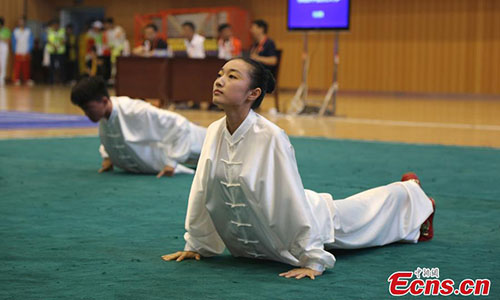
A participant performs kung fu during a traditional healthcare sports meet at Shanxi University of Traditional Chinese Medicine in Taiyuan City, the capital of North China’s Shanxi Province, Sept. 6, 2016. Hundreds of kung fu practicers from 26 schools of traditional Chinese medicine in China participated in the sports meet. (Photo: China News Service/Fan Lifang)



 Reply With Quote
Reply With Quote












 Is there a Modern Wushu version of TCM? There is one for qigong now.
Is there a Modern Wushu version of TCM? There is one for qigong now.
